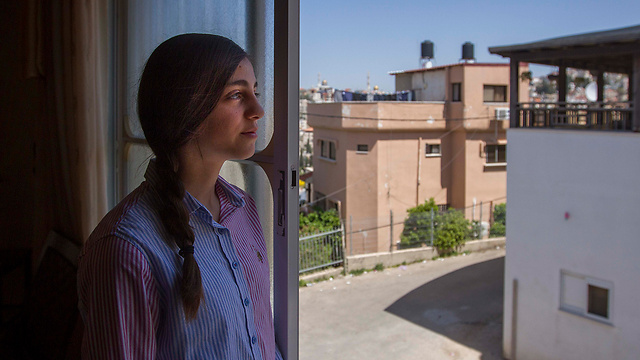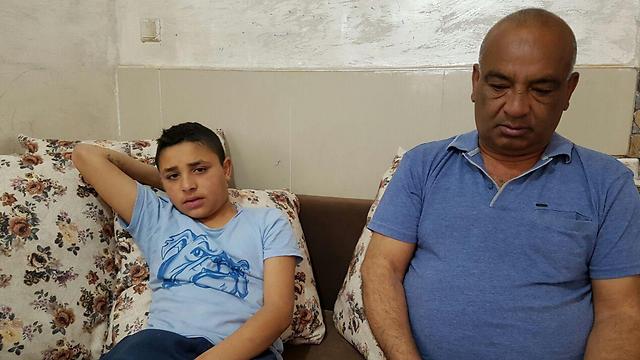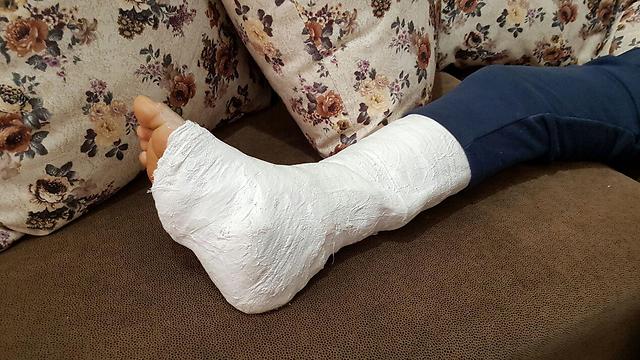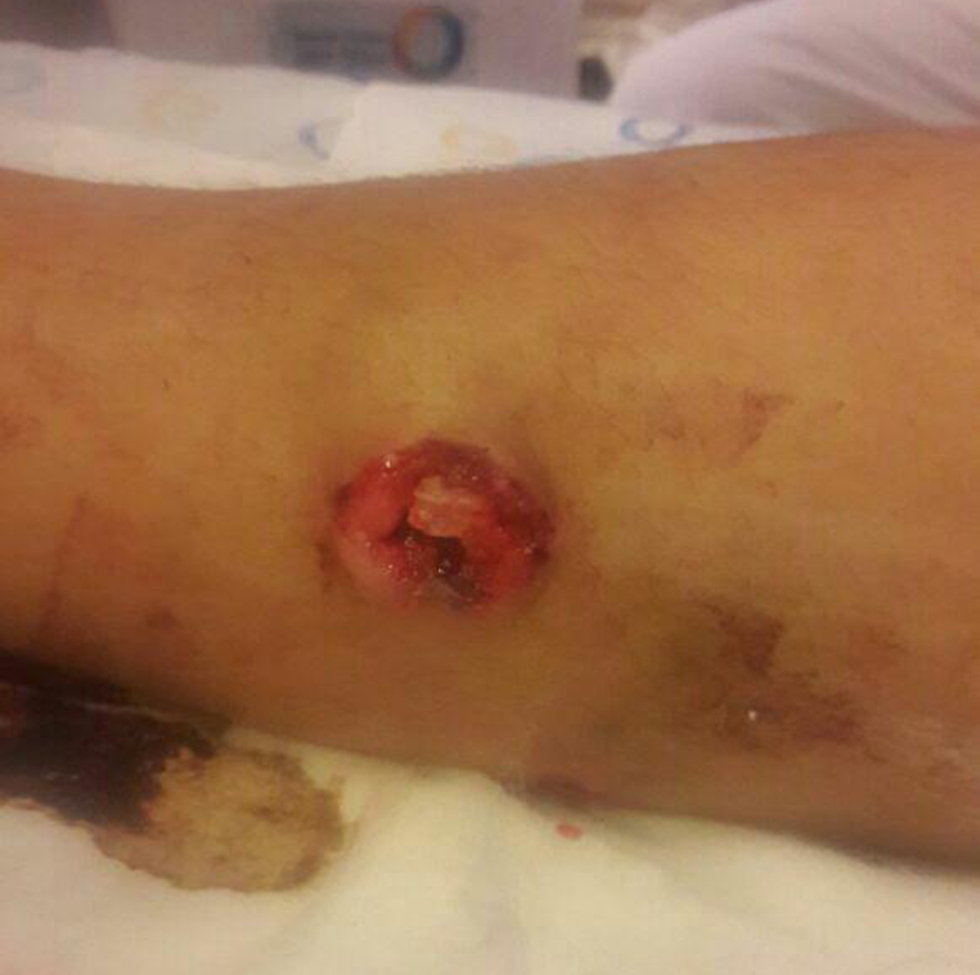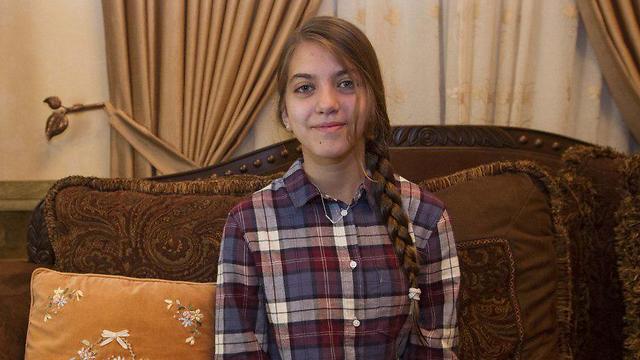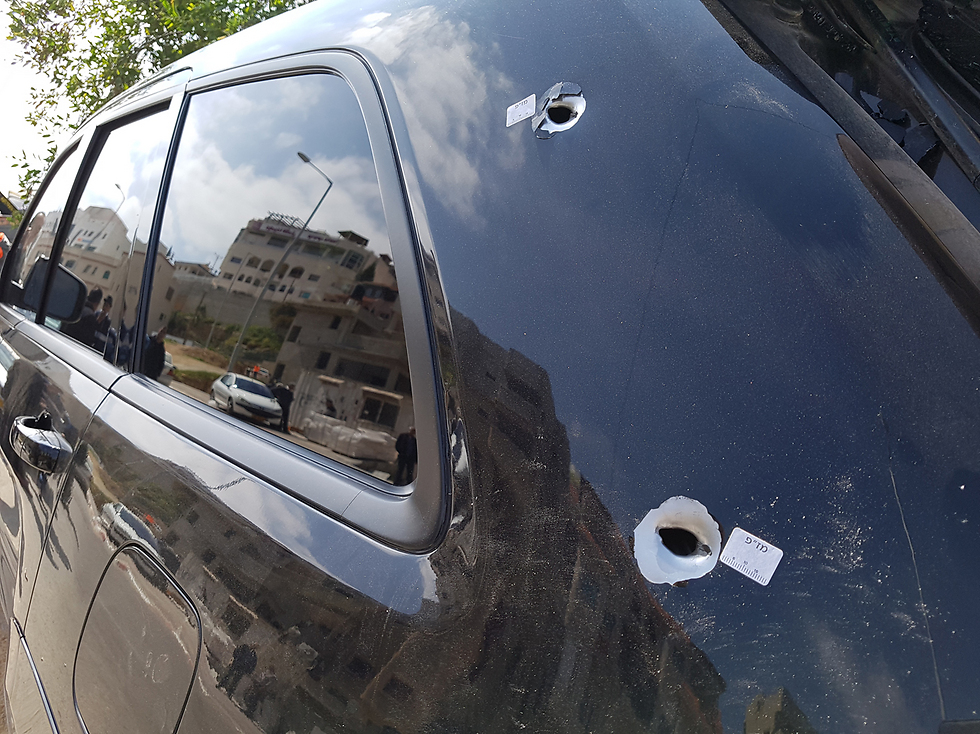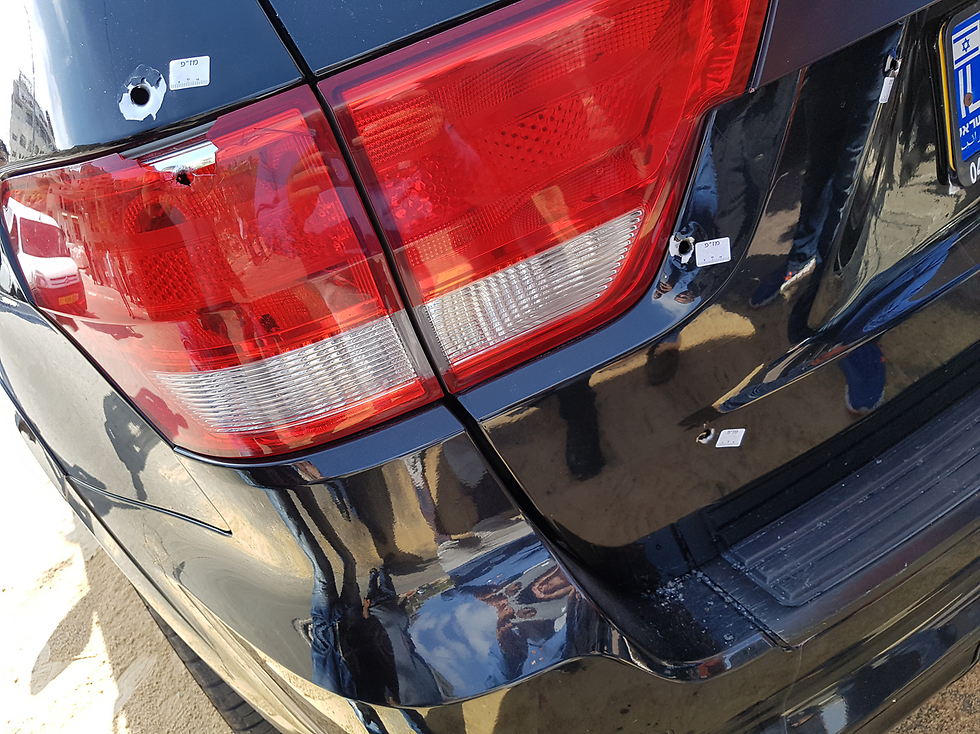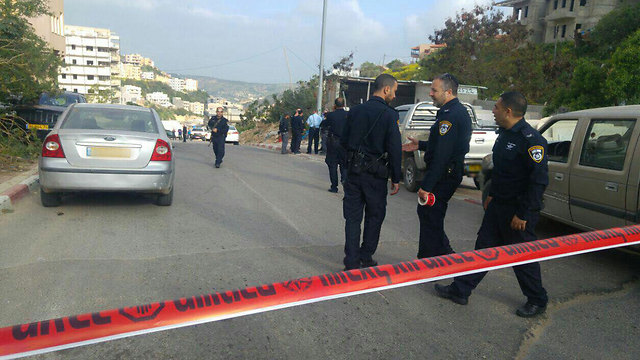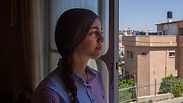

Arab Israeli children live in fear of gunfire
Shootings are plaguing the Arab populace in Israel, endangering dozens of innocent bystanders; since the beginning of the year, there have been 18 Arab civilian deaths in shooting incidents, similar to last year's January–April toll of 20; Arab child, after reporting a shooting: 'No policeman came. Why is that? Do they think Arab blood is cheap?'
Since the beginning of the year there have been 18 civilian deaths among the Arab populace caused by shooting incidents in which dozens more were wounded either deliberately or accidentally—among them children, who were hurt not only physically but mentally.
As Israel Police activity in Arab towns and villages is considered to be complicated and dangerous, Arab-on-Arab crime has grown rampant in recent years; with protection rackets, drugs and illegal weapons trade, primarily carried out by crime cells or clans that have devolved into crime families, causing a massive increase in violence and shooting incidents.
"After what I've been through I'm scared to leave home and go to school. I'm afraid that I'll get shot again," said Muhammad Amash, 10, who was struck by a stray bullet.
Muhammad, who lives with his family in Jisr az-Zarqa, told Ynet that about a month ago he and his relative went to visit a friend, when suddenly they heard gunshots. "We tried running away but I got hit in my right leg. My relative was also wounded; he got shot in the chest."
Jamil Amash, Muhammad's father, said, "The little children are the ones paying the price of the violence. My son is having a hard time coping with what happened to him. We're all scared to get shot. My nephew, who is 13 years old, was shot in that same incident and is still in serious condition.
"We're all busy with treating the wounded and in the meanwhile the shooters are walking free. Unfortunately, the police are not doing enough. Even if they arrest someone the court releases them and our lives remain in danger."
Wesam Amash, Muhammad's mother, said, "Despite the horrible incident we went through, the authorities didn't pay us any mind. Our situation demands assistance for my son, but we were abandoned. My son is traumatized. He barely sleeps at night, reliving that nightmare."
The head of Jisr az-Zarqa's local council, Murad Amash, said that the current situation worries him and all of the town's residents. "The violence cannot continue. We need immediate solutions before more disasters occur."
Murad continued, "We at the council try constantly—together with our schools' administrative staff and teachers—to raise awareness to decrease violence and crime. We also meet with different groups and organizations to come up with a plan to eradicate this trend."
Jinnah Mahamid, who lives with his family in the E-Shajur neighborhood in Umm al-Fahm, recounted, "A few days ago, I was sitting in the backyard with my parents. All of the sudden, we heard gunshots and immediately ran inside. Later, when we went outside again, we saw bullet holes where we had been sitting.
"Now, we're scared to even sit in the guest room, afraid that a bullet might pierce through the window and hit us. We stay in a closed room and don't leave the house. It's like being in prison."
Marwa Ahmad Mahamid, 12, also recounted a shooting that nearly wounded her and her family: "Most of the time, especially at night, I'm nervous because of the loud gunfire you constantly hear here. We girls go to school terrified. Even during class, we're afraid that a bullet might enter through a window and hurt us.
"It's not an easy thing to cope with. We also had an incident where shots were fired at our home and almost pierced through to the rooms we were in. Sometimes I can't sleep, even in days before tests. It's affecting my grades."
Binan Mahamid, who lives in the Ayn Jarar neighborhood in Umm al-Fahm, echoed the same experience and hardships, saying, "It's constant shooting at night, which really stresses me out.
"A couple days ago, we came home and we saw a bullet right on the ground, and it was really creepy for me because it was at the entrance to our house. If we had been here in that moment (when it was shot), we could have been injured.
"I got really angry when not even one policeman would come (after we reported it). If this would have happened in a (Jewish) Israeli community, not just one policeman would come, but four or five.
"Why is that? Do they think Arab blood is cheap?
"We lived for awhile in the Unites States and never had this kind of problem. I want to go back because I'm tired of the violence.
"We used to ask for playgrounds, museums, nice streets, but what we really need now is safety. We need to feel safe in our homes. We need somebody to protect us."
Nadiya Mahajana, principal at the Khadija Secondary School for girls in Umm al-Fahm, explained that it is common knowledge that the phenomenon has spread throughout the city.
"We all suffer from it because it affects us all. We do our best here, together with the administrative staff and teachers, to help the girls put the danger out of their minds through social activities," she said.
Reda Jaber, director of Aman—the Arab Center for a Safe Society—explained that "the challenge of dealing with violence in Arab society is both social and structural. Arab society needs to be reorganized and rebuilt from its foundations for it to resolve the issues afflicting it, and not just deal with their symptoms.
"Fixing the erosion of its values that once united it. Forgoing its clannish and tribal structure, which prevents any real progress by the local Arab authorities. Nurturing Arab settlements, fighting poverty and taking care of youths by establishing vital community centers for non-formal education. Improving women's status in society and the perception of government and law.
"All these things require political and social leadership willing to take the lead, face reality and bravely work for meaningful and even painful changes.
The police responded that they "have been operating in recent years together with the Ministry of Public Security to meet the unique needs of Arab society to reduce crime and increase feelings of safety and trust in the police and the rule of law among citizens. That is done through, among other things, firm enforcement against law breakers.
"In recent years we have seized thousands of armaments and arrested hundreds of suspects, indicting them whenever we could. In 2015 more than 1,100 indictments for weapon violations within the Arab populace were filed, and more than 900 suspects' remands were extended until the end of the proceedings against them.
"These results are a product of due decisive action and are, and the number of arrests that result in indictments is only getting higher."
(Translated & edited by Lior Mor)














